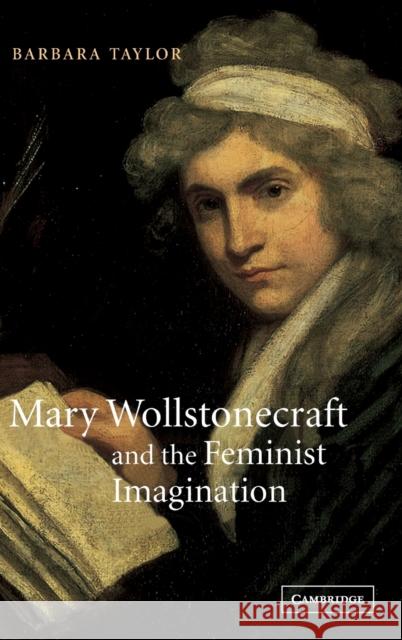Mary Wollstonecraft and the Feminist Imagination » książka
Mary Wollstonecraft and the Feminist Imagination
ISBN-13: 9780521661447 / Angielski / Twarda / 2003 / 352 str.
Mary Wollstonecraft and the Feminist Imagination
ISBN-13: 9780521661447 / Angielski / Twarda / 2003 / 352 str.
(netto: 492,09 VAT: 5%)
Najniższa cena z 30 dni: 508,78
ok. 16-18 dni roboczych.
Darmowa dostawa!
In the two centuries since Mary Wollstonecraft published A Vindication of the Rights of Woman (1792), she has become western feminism's leading icon, a stature that has obscured her actual historic significance. Examining in detail Wollstonecraft's writings, Barbara Taylor provides an alternative reading of her as a writer steeped in the utopianism of Britain's radical Enlightenment. Her feminist principles are shown to have arisen within a revolutionary program for universal equality and moral perfection that reached its zenith during the political upheavals of the 1790s but had its roots in the radical-Protestant Enlightenment. Locating Wollstonecraft within her literary and political milieus, and tracing the relationship between her feminist radicalism and her troubled personal history, the book draws a compelling portrait of this fascinating and profoundly influential thinker. Barbara Taylor, a reader in History in the Department of Cultural Studies at the University of East London, is an intellectual and cultural historian specializing in the history of feminism from 1750-1850. Her first book, Eve and the New Jerusalem: Socialism and Feminism in the Nineteenth Century (Pantheon, 1983) is a study of the feminist dimension of British Utopian Socialism. It was published to widespread acclaim and she has been awarded many research grants, including fellowships from the Leverhulme Trust, the Nuffield Foundation, the British Academy and the Guggenheim Foundation.











